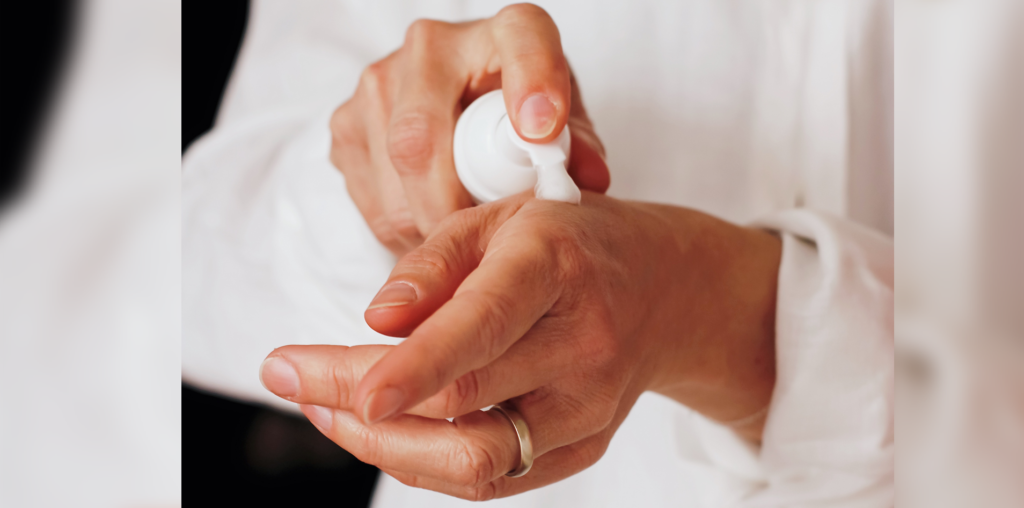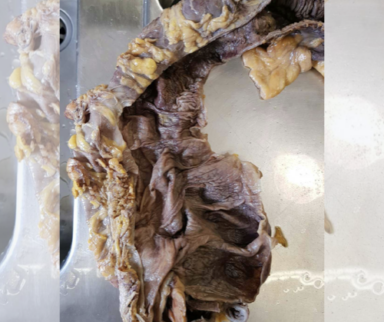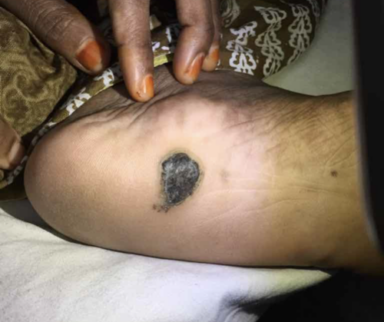
Sunscreen and Melanoma
It turns out, we’re not completely sure wearing sunscreen prevents melanoma.
To be clear, I’m not saying that sunscreen absolutely doesn’t prevent melanoma. I’m just saying that when we look at the literature, there isn’t a whole lot there.
I’m also not saying you should stop wearing sunscreen. If you’re a white person, you should still wear sunscreen. But if you’re a person of color, I’m less sure.
Melanoma Incidence by Race
Melanoma doesn’t affect everyone equally. The color of your skin makes a big difference.
When we look at melanoma incidence rates across racial and ethnic groups, white people of European descent are overwhelmingly those at risk of melanoma. In contrast, people of color have melanoma risk and incidence rates several times lower, with Black people being almost 30 times less likely than white people to get it.
This is because of melanin, a family of chemicals in your skin that gives you your skin color. People with darker skin have more melanin in their skin than those with lighter skin. Melanin acts as a physical barrier to UV light, causing UV rays to scatter, preventing it from penetrating into deeper skin tissues.
Since UV radiation is the main risk factor for melanoma, having more melanin in your skin gives better protection against UV damage. And that’s why we see such low incidence rates of melanoma in Black people.
But melanomas do happen in Black people. They just tend to happen less often, and on parts of the body that don’t get as much sun, like the palms of the hands and soles of the feet. This is known as acral melanoma. Scientists are still not sure of the underlying causes for this type of melanoma.
From the little research that has been done specifically on Black patient populations, there doesn’t appear to be a connection between acral melanoma and UV exposure.
Research on Melanoma Prevention
Getting back to the topic of melanoma prevention, this paper summarizes all four of the studies that followed participants over a long period of time, to determine if sunscreen prevents any kind of skin cancer.
Yes, you read that right. There’s been only four studies.
Here’s a few interesting things to note. The participants in all of these studies were already at an increased risk of developing skin cancer, like people with a history of actinic keratosis, people who live close to the equator, or people who have had solid organ transplants.
Only one of these studies measured sunscreen’s effectiveness at preventing melanoma, and it was also the only randomized control study.
This study’s intervention portion lasted for about 4.5 years. Participants in the experimental group were given a free, unlimited supply of SPF 16 broad spectrum sunscreen and were told to apply it every morning to their head, neck, and arms. The participants were also encouraged to reapply as needed, and that they were welcome to use any other sunscreen as they normally would in addition to the morning application. In comparison, the control group was asked to apply sunscreen as they normally would.
Participants were then followed over the next 20 years. Researchers were informed when participants developed melanoma not just on their face, neck, or arms, but on any part of their body.
And the results were inconclusive. In the control group, 22 people out of 809 were diagnosed with melanoma. In the experimental group, 11 people out of 812 were diagnosed with melanoma. This means that if sunscreen did have a protective effect, the absolute risk reduction here is around 1%, which means that if 100 people wore sunscreen, only one person would avoid melanoma.
But because melanoma is relatively rare, very few people in either group actually developed melanoma. And so the study just didn’t have enough participants to give us a meaningful answer.
Moving on, there are two other meta-analyses that looked at the effectiveness of sunscreen at preventing melanoma. These papers included other study types like case-controlled studies. And both of these papers found the same thing, that the evidence is weak.
And that’s it. That’s all we’ve got on how effective sunscreen is against melanoma. One borderline inconclusive long-term randomized control trial and a handful of meta-analyses looking at case-control research, which all show the evidence that sunscreen prevents melanoma is weak.
The point here isn’t to say any of this research is bad. I actually think, for the most part, that the randomized control study did a pretty good job testing sunscreen’s impact on preventing melanoma. They just didn’t have a large enough sample size. My point is to show that there just hasn’t been much research at all.
Issues With Sunscreen Messaging
The issue I take with all of this isn’t with these studies, or the lack thereof. It’s with the messaging of sunscreen to the public. It kind of feels like public health agencies and sunscreen manufacturers are being a bit dishonest with their very specific messaging: sunscreen prevents melanoma.
I get the importance of having a simple digestible message for the general public, but it’s a double-edged sword. Public institutions run the risk of coming off as disingenuous, especially during a time of significant mistrust in healthcare institutions.
But it also can be harmful on a personal level. If I hadn’t looked into this topic, and then I developed melanoma at some point in the future, I would probably blame myself for not wearing enough sunscreen, even though I wear it often, and generally avoid the sun. I don’t think public health agencies should foster that kind of self-blame in the public, when there isn’t a lot of evidence to justify their messaging.
So in summary, should people wear sunscreen? If you’re a white person, yes absolutely. But I don’t think we should be as heavy handed on the messaging that sunscreen prevents melanoma. It’s clear we just don’t know that for sure. Instead, maybe a better public health message is that sunscreen prevents painful sunburns and skin damage, and might help reduce your risk of certain skin cancers.

By Kyle Slinn, RN, BScN, MEd
Registered Nurse
Published August 18, 2022
Join the Conversation
Sign up for Figure 1 and be part of a global community of healthcare professionals gaining medical knowledge, securely sharing real patient cases, and improving outcomes.


